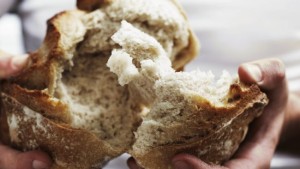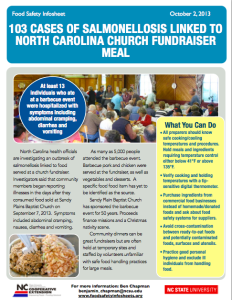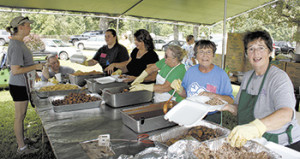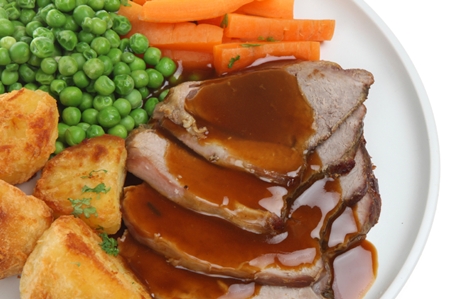Lisa Abraham of the Columbus Dispatch writes in a column about the tragic potluck dinner at Cross Pointe Free Will Baptist Church that social aspects and community building of potluck dinners are important – but safety should rise above fellowship.
People often ask me why I prefer to write about food.
My answer is always the same: Food unites us.
It is our common denominator; we all need nourishment.
They were “breaking bread together,” church pastor Bill Pitts recently told The Dispatch.
Many of us have taken part in similar events.
The end-of-the-year potluck is the highlight of the gatherings of my church book club. I look forward to trying the different dishes that club members bring, and we convince one another that it’s rude not to sample every dessert (wouldn’t want to offend the person who made it).
I have a few friends who are squeamish about eating at potlucks; they worry about the conditions under which the food was prepared.
I understand their concerns, and the Lancaster case certainly gives them credence.
Instead of making us more wary of others’ food, though, I hope that the incident makes us more cautious when preparing food.
I thought about the jars of home-canned jelly, relish and other foods that friends have shared with me through the years. As long as the seal was tight, I didn’t ask about the canning method used.
Let’s learn a lesson from Lancaster — by ensuring that the bread we break is safe to share.




 morbidity from 1998 to 2008.
morbidity from 1998 to 2008. afternoon were less likely to have become ill. Food testing is being conducted and it is expected to be several days before all results are known.
afternoon were less likely to have become ill. Food testing is being conducted and it is expected to be several days before all results are known..jpg) Department of Agriculture and the cooperation of the Sacred Heart Catholic Church in Arkansas City, have been conducting an investigation of a foodborne illness outbreak associated with the Sacred Heart Turkey Dinner that was held on the evening of November 8.
Department of Agriculture and the cooperation of the Sacred Heart Catholic Church in Arkansas City, have been conducting an investigation of a foodborne illness outbreak associated with the Sacred Heart Turkey Dinner that was held on the evening of November 8. (1).jpg) the Sacred Heart Catholic Church in Arkansas City, are continuing to conduct an investigation of a possible foodborne illness outbreak, and are asking for the public’s help in completing a survey to identify the source of the outbreak.
the Sacred Heart Catholic Church in Arkansas City, are continuing to conduct an investigation of a possible foodborne illness outbreak, and are asking for the public’s help in completing a survey to identify the source of the outbreak.  Umpires and inspectors alike are not there to control the game, just to ensure it is being played right.
Umpires and inspectors alike are not there to control the game, just to ensure it is being played right.